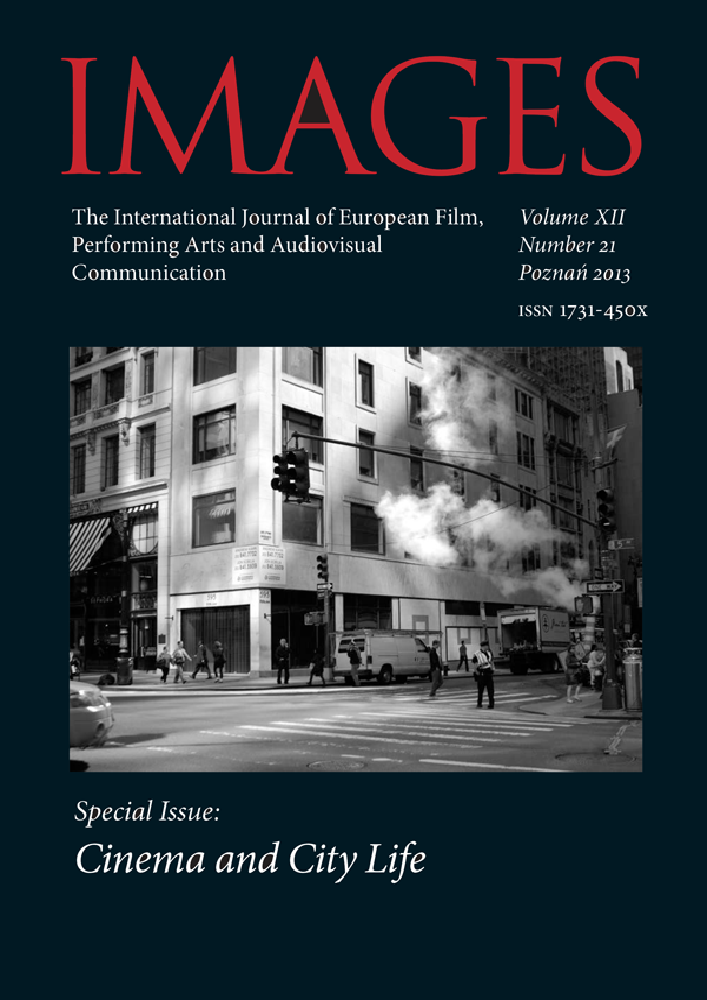Abstract
The article discusses three documentaries made since 2000 by Scandinavian filmmakers: the Finnish director Marja Pensala’s The Eclipse of the Soul (2000) and two films by Danish authors: Boris Bertram’s Tankograd (2010) and Ada Bligaard Søby’s The Naked of Saint Petersburg (2010). All the films are portraits of Russian cities and their residents. In my study, I draw on concepts such as the “Russian soul”, private/public and bytie (the spiritual being)/byt (the daily grind), which, as I argue, are important aspects of all three films, and at the same time, useful tools for their analysis. Common to these documentaries is the fact that the authors direct their attention to the asymmetrical relation between the state’s position of power and its largely powerless citizens. The constitutive element of a city as such – being a public space, i.e. a space to which all people should have equal access and rights – appears largely distorted. As a consequence, the residents escape from their stark reality to create alternative, imaginary spaces – be it a lost paradise, like the underwater city of Mologa in Pensala’s film, a cosmic heterotopia, like the space of art in Bertram’s Tankograd, or a spiritual universe, like in Søby’s short documentary. In all these films, the directors’ point of reference – their cultural perspective – is emphasized as a filter, through which the Russian reality is perceived.License
Copyright
© by Adam Mickiewicz University, Poznań, 2013
OPEN ACCESS
